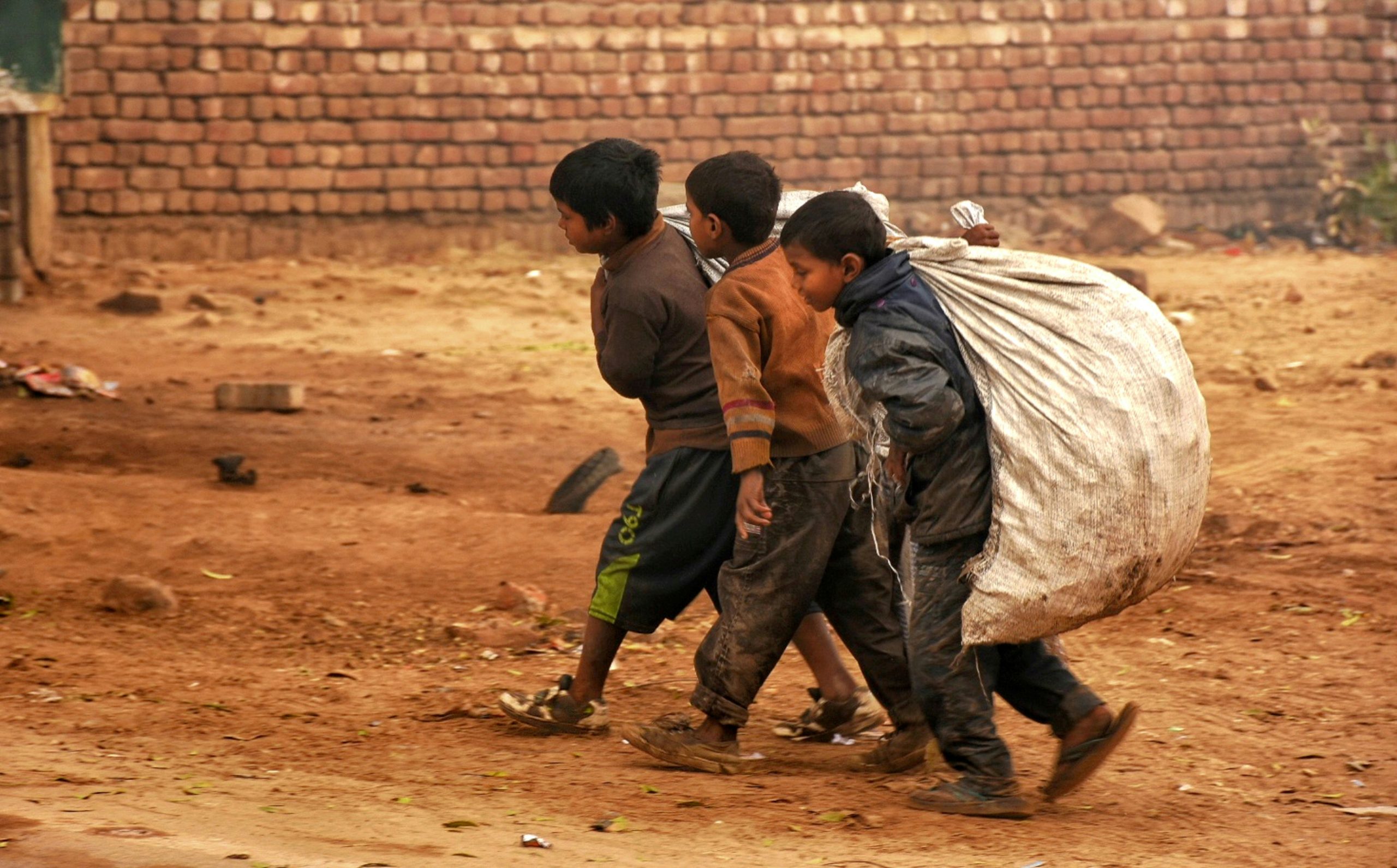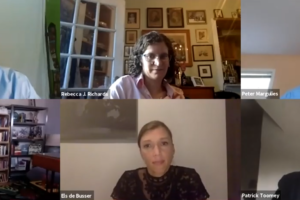Child Labor and International Law – A Clash of Conventions: Business Obligations Regarding Child Labor Issues (IIL Symposium) (2/2)

Source: Dulana Kodithuwakku
This piece is part of the American Branch’s second blogging symposium, examining the ILW 2024 theme of ‘Powerless law or law for the powerless?’ from an International Investment Law perspective. This symposium is sponsored by the International Investment Law Committee, but published works are solely those of the authors.
Child Labor and International Law – A Clash of Conventions: Business Obligations Regarding Child Labor Issues
Part 2: Obligations of Business Enterprises Regarding Child Labor Issues
by Alan Franklin, JD LLM*
Both the ILO Age Convention and the CRC are legally binding on the state parties; however, they do not impose direct legal obligations on non-state parties such as business enterprises (BEs).
The obligations of BEs derive primarily from the United Nations Guiding Principles on Business and Human Rights (UNGPs), which do not impose legal obligations on businesses; rather, they impose responsibility on businesses to act following human rights principles. Thus, it is incumbent on BEs to consider the principles enunciated in the ILO Conventions, the CRC, and similar documents to determine for themselves their obligations to children and child labor. Similarly, the OECD Guidelines for Multinational Enterprises guide BEs. Since these are set out as guidelines, they are not intended to impose legal obligations. Their guidance on child labor issues is most relevant.
In addition to these “soft law” documents, BEs are now also subject to laws on supply chain due diligence, such as:
– The German Act on Corporate Due Diligence Obligations in Supply Chains, which came into effect in 2023,
– The French Corporate Duty of Diligence Law, which came into effect in 2017,
– The European Union Directive on corporate sustainability due diligence (2024/1760) entered into force in 2024 but is under revision pursuant to the Omnibus Package,
– The Canadian Fighting Against Forced Labour and Child Labour in Supply Chains Act, which came into force in 2021,
– The UK Modern Slavery Act, which came into force in 2015.
The abovementioned laws address issues related to child labor but do not clarify whether children’s rights to make their own decisions under the CRC still apply or whether the ILO Age Convention triumphs.
Governments are legally bound to adhere to these conventions. However, to rationalize the contradictions above, BEs must understand child labor issues and consider them from a “best interests of the child” perspective. While the rules promulgated by international conventions are somewhat contradictory and, in many ways, deny the child’s best interests from being applied, BEs have no such restrictions on sources and methods of engagement with the issue of child labor. They are, therefore, obligated to consider these issues in a broader context.
BEs may thus want to focus on comments found in the open letter to the CRC Committee, which recommended the guidance regarding the Rights of Adolescents not to adopt any fixed age limits for child labor. This letter suggested instead that reference be made only to ILO Convention 182 (The Worst Forms of Child Labour). The letter states in part:
“The signatories’ support for Convention 182 in this specific instance is subject to the proviso that, prior to any application, the voices of children who will be impacted are listened to and acted upon; their rights will be respected; and that their best interests (decided in conjunction with the children themselves) will be prioritised in all cases. The letter furthermore rejects the blanket application of ILO Convention No. 182 and instead suggests that its application should be guided by careful consideration of the social, cultural, and economic circumstances within which children live and labour.”
The letter references Beyond Trafficking and Slavery Supporters 2015, edited by Sam Okyere and Neil Howard. This Volume contains articles by 18 of the foremost authors on children’s issues globally . The introduction to the Volume states: “This volume […] argues that the dominant abolitionist discourse and its associated policy directives often impede the best interests and rights of the children they purport to ‘protect’ or ‘rescue’. This largely happens because the protections […] often lack thorough understanding of the social, cultural, and economic circumstances surrounding young people’s work, mobility, and lives.”
The crucial element in Open Democracy’s letter is the statement quoted in the first blog that the ILO Age Convention is not concerned with the human rights of children.
BEs are urged to read this statement very carefully for the following reasons:
1. The CRC outlines the concept of the best interests of the child and states that children have a right to express their views (Article 12) and that their views must be taken into consideration; that concept is negated by CRC Article 32, which obligates states to institute and enforce minimum ages for work, regardless of the interests and views of the affected children. See discussion in part 1 hereof regarding reconciling this conflict.
2. As the Series introduction suggests, these conventions are the result of politics, disengaged from the objectives of the best interests of the children, because they lack an understanding of the social, cultural, and economic circumstances surrounding young people’s work.
Thus, when BEs engage in due diligence, they must look at why children under 18 work in the particular situation. Is their income required for them (and their family) to survive? Is there meaningful education available to the child who does not work? In many developing countries, little or no education is available for poor children, especially those in remote areas. Even if there is meaningful education for poor children in the region, should children be expected to attend if the result would be highly detrimental to the child’s or family’s economic survival?
As Justice Posner stated in Flomo v Firestone Natural Rubber Co (7th Circuit of Appeals 2011), this is a balancing act. Is the child better off not working if, by not working, the child and family will suffer greater deprivation? Can the child consider that when deciding to work or not, under the CRC? International laws are blunt instruments to be applied to unique, delicate situations. It becomes the role of businesses to assess each situation on its merits, using international law as a guide, but never taking these laws as definitive of their obligations without carefully examining the effects in the individual situation.
The issue of child labor vs. child exploitation is complex and delicate. As discussed in the first blog piece, the ILO Age Convention refers to age without differentiating between exploitation and non-exploitation. Differentiating between exploitative and non-exploitative situations for children is discussed in Article 32 of CRC wherein it refers to “economic exploitation” and perhaps alluded to in the ILO Age Convention in Article 5(3) regarding family farms and small-scale holdings which state “but excluding family and small-scale holdings producing for local consumption and not regularly employing hired workers.”
Much of the guidance regarding child labor emphasizes the importance of education. If a child does not have the opportunity to attend school (for example, due to a lack of proximity to a decent free educational facility) and chooses to work, is that considered interference with the child’s education? The World Bank report of 2019, The Education Crisis: Being in School Is Not the Same as Learning, explains the significant difference between children being in a school and actively learning. The guidance rarely acknowledges this reality, but BEs need to understand this difference and investigate whether the child is merely ‘in school’ and learning little of value or is engaged in meaningful education. If the former is true, does work interfere with their education?
Moreover, this concept is supported by The Guardian’s report ‘Tired, hungry and shamed: pupil poverty stops learning,’ which concludes that children in poverty cannot learn effectively, even if the quality of education is high. This report focuses on children in poverty in the UK.
Adolescents as heads of households arise from circumstances such as the death of parents, separation from parents, or the adolescent being a parent with children, and are referred to in some of the guidance documents. These adolescents must support their families and, as a result, work instead of attending school. While governments have legal obligations to provide support, they rarely do. Therefore, BEs must be aware of this issue, as removing adolescents from work without giving sufficient alternative income would significantly harm them and their families.
The type of work being done by a child is an essential factor to consider. Article 3(1) of the ILO Age Convention refers to work likely to jeopardize young persons’ health, safety, or morals. CRC Article 32 refers to economic exploitation and performing any work that is likely to be hazardous, interfere with the child’s education, or harm the child’s health or physical, mental, spiritual, moral, or social development. If the work is non-exploitative, such as working in a family operation or in a situation where the child is choosing freely to work (CRC Article 12), then it could be said that this type of work does not run contrary to any of the prohibitions. Thus, BEs should consider whether work by a child in a textile factory harms health, physical, mental, spiritual, moral, or social development, particularly regarding the local conditions in which the child lives.
Conclusions Regarding BEs and Child Labor Issues: The Kigali Declaration and a Call to Action
The Kigali Declaration of 2023
A conference of children met in Kigali, Rwanda, in 2023 to discuss issues related to children, particularly concerning their right to work and the right of children to be heard and to make decisions in accordance with Article 12 of the CRC. At this conference, representatives of committees and associations of working children from 16 countries across the world came together for a Global Gathering of Working Children and Youth. The Kigali Declaration states:
“Protect us from labour exploitation, harsh conditions and risks, and allow children to do suitable dignified work.
We all want our right to be protected from exploitation to be respected. We do not want to do work that is too heavy, underpaid, harmful, in harsh or risky conditions or linked to trafficking and bonded labour, which is a crime. Boys face increased risks of heavy work, and girls face increased risks of doing unpaid household work for long hours, taking them away from proper and dignified work.
However, we do not want to stop all forms of child work. We want to do work that is suitable to our age and capacity to support our families, to learn skills, to earn money, to meet our basic needs and to respect our traditional cultures. This work needs to be safe, fairly paid, and allow for sufficient time to study, rest, and play.” (emphasis added)
The Kigali Declaration continues:
“Many of us feel proud to contribute to our families and want our work to be valued. Our work gives us the opportunity to lead our lives with dignity, provide for our families, and to continue our education as it is also our cultural practice, not just the effect of poverty and exploitation.
Existing laws on protection from child labour and exploitation must be adequately enforced and monitored everywhere. Plus, policies should support safe work, earn and learn education opportunities, and inclusive skill-based training. Work conditions should be improved, including for working children with disabilities.”
As we read this, we need to be aware of the following further elements of that Declaration:
1. This is coming from children and children’s representatives. Under the CRC, their voices are to be heard and respected. As they said in the Declaration: “We have the right to be heard and need to be seen, heard and engaged in all matters that affect our lives. We want to participate in decisions at all levels and be taken seriously by parents, caregivers, teachers, employers, police, practitioners, religious, traditional and community leaders and policy makers – including government authorities, and other national and international agencies, such as UNICEF, ILO or regional bodies.”
2. As Section 4 of the Declaration states in part, “Listening is not enough; we want adults to act on what we say.” This is crucial—they do not want to be listened to, patted on the head, and then the government does as it wishes. That is contrary to the concept of the CRC Article 12.
Thus, the author suggests that BEs look at the contradictions within the international conventions on child labor and child rights, and try to reconcile those contradictions to assist children, based on their needs, wants, and their best interests. Suppose the children have no educational possibilities in their particular region. In that case, they may want to help those children initially to obtain work that will fall within the demands under the Kigali Declaration, while simultaneously exerting pressure on the government of the state, inter-governmental organizations, NGOs and other stakeholders to provide the children with their rights to education, and better quality of life. This will require BEs to embrace, investigate, and invest in solutions to help the children.
Further reading: It’s Time to Talk: Children’s Views on Children’s Work, Kindernothilfe, Germany Terre des Hommes. This discusses children’s views on their right to work, but within limits.
Read Part One here.
 *Alan Franklin practiced law for many years before transitioning into academia and consulting. He taught International Business Risk Management for 12 years in the Executive LLM program at Athabasca University in Canada, and for five years, he taught International Business at the Royal University of Law and Economics in Cambodia. Currently, he is working with international legal experts to develop a global Charter addressing child labour issues in business. He has delivered seminars on child labour in cities including Toronto, Vancouver, New York, and Phnom Penh.
*Alan Franklin practiced law for many years before transitioning into academia and consulting. He taught International Business Risk Management for 12 years in the Executive LLM program at Athabasca University in Canada, and for five years, he taught International Business at the Royal University of Law and Economics in Cambodia. Currently, he is working with international legal experts to develop a global Charter addressing child labour issues in business. He has delivered seminars on child labour in cities including Toronto, Vancouver, New York, and Phnom Penh.



